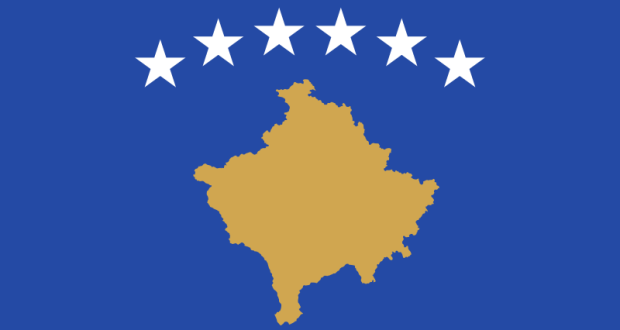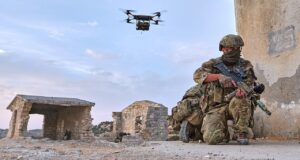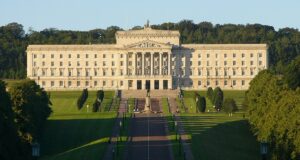October 2nd, 2016
By Irena Baboi – Research Assistant
On 1 September, Kosovo’s government postponed a parliamentary vote on the ratification of a controversial bill that would demarcate the country’s border with Montenegro. The vote on the bill was said to have been taken off the agenda due to political pressure by the opposition, as well as the refusal of ethnic Serbian deputies to attend the parliament session. The border demarcation plan has been the cause of arguably the most serious political crisis Kosovo has experienced since declaring its independence in 2008, and the proposal has sparked numerous protests both inside and outside the Kosovar parliament since it was signed with Montenegro in August 2015. Unsurprisingly, in a vote that was scheduled for and took place the following week, the European Parliament agreed that Kosovo should be granted visa-free travel, but decided to hold back on opening negotiations with the country on the matter indefinitely.
In different circumstances, this would be yet another instance of political disagreement preventing effective decision-making in the Balkans; this time, however, the stakes are simply too high to dismiss it as that. Internally, the violent anti-government demonstrations in response to the demarcation agreement prevented the government from functioning properly for nearly six months this year. Internationally, clarifying its border with Montenegro is the only option if Kosovo is to be allowed the much sought-after visa-free travel to European Union countries in the near future.
The idea that current border demarcations need to be protected and defended at all costs is an integral part of any and every nationalist rhetoric employed by the political elite, particularly in regions where nationalism is used as a tool to ensure political support. Territorial loss can be difficult to tolerate for any country, but even more so for one that fought hard to gain it. As a consequence, the opposition in Kosovo has been relatively successful in ralying support for their protests by arguing that the bill would transfer over 8,000 hectares of land to Montenegro. Government officials, however, have rejected this charge, saying that the border defined in the bill follows the boundary of Kosovo as laid out by UN Special Envoy Martti Ahtisaari in 2007.
Furthermore, it is important to note that the border agreement, as well as the debate that ensued in Kosovo in its aftermath, have never sparked controversy in Montenegro. Following Kosovo’s decision to postpone the ratification of the agreement, Montenegro’s Prime Minister Milo Djukanovic stated that the agreement itself was based on the findings of the Badinter Commission, which declared that all future borders in the region should be in line with the internal borders of the former Yugoslav federation. The prime minister also stressed the need to maintain the good relations that the two countries have enjoyed over time, and that Montenegro has never asked for any territorial concessions on the part of Kosovo.
In light of the necessity to prevent the deterioration of relations between the two countries, as well as the internal tensions that are only likely to continue, Prime Minister Isa Mustafa’s decision to postpone the vote and attempt wider-reaching negotiations was wise, and showed an awareness of the need to ensure political cohesion before a decision is taken. The prime minister knows that the parliamentary majority needed for the agreement to pass, regardless of how likely it is, will not be enough; the country also needs the social peace and stability necessary to implement it, as well as upcoming and more sensitive ones.
As the youngest country in the region, Kosovo is the only one whose people cannot take advantage of visa-free travel to the European Union for education, employment and business. Like any nationalist party, the Vetevendosje (Self-determination) Movement have said that these actions have the interests of the Kosovar people at heart, and are meant to ensure these are represented and fulfilled. With the economy stagnating, however, and many Kosovars forced to leave the country in search for better opportunities, sometimes illegally, these are not actions that have the long-term interests of the people at heart; and their consequences are certain not to benefit the great majority of the people they claim to represent.
The current internal tensions in Kosovo also raise alarming uncertainties for the country’s immediate future. In the past year, tear gas has been sprayed repeatedly by opposition MPs in parliament, and protest rallies organised by the opposition parties in Pristina have resulted in numerous violent clashes with police and armed forces. If this is the reaction to a border agreement with a country from which it peacefully separated – Montenegro recognised Kosovo’s independence in 2008 – what will happen when the more difficult step of clarifying the boundary with Serbia will become necessary?
Moreover, as an only partially recognised state, Kosovo has an even more uphill battle towards membership of the European Union, even compared with its neighbouring countries. For this, as well as the more immediate goal of visa liberalisation, the country needs to start making compromises. If the negotiations proposed by the prime minister do not result in a breakthrough, the solution will need to be international arbitration. This would not be the first instance in the Balkans; but for a country like Kosovo, it would send the unwanted signal that it has not moved past a heavy reliance on Western help and support, and is not closer to becoming a fully independent and self-governing state.
The decision to recognise Kosovo’s independence had significant global effects, not least so on other secessionist entities with independence claims of their own. Since then, the Western powers have gone to great lengths to emphasise that this did not constitute the beginning of a new practice, but rather a one-time instance where the status quo was considered unsustainable enough to warrant recognition. The Pandora’s Box partially opened then determined the international community to set the bar high for future claims for independence, and provided itself with a justification for not supporting current ones. The West made an exception, which is now considered by some to be a miscalculation, for Kosovo in 2008; they will not make an exception for the country again.
The ongoing tensions with Serbia have created enough obstacles in Kosovo’s quest for European integration. They are also severe enough to pose a threat to the country’s future, as well as that of the entire region, and can only be worsened by further internal divisions and external animosities. On the other hand, a politically united Kosovo that shows willingness to compromise in order to fulfil the necessary pre-requisites for membership of the European Union may influence Serbia to do the same – or at least make it more difficult for the latter to convincingly defend a need to stand its ground.
Achieving political consensus on the border demarcation with Montenegro, as well as the necessary social stability to implement the agreement, would send two strong and important signals: that Kosovo is committed to becoming a member of the European Union and determined to prove it; and that this is a country that Europe can work with and have it contribute positively to both the Union itself and the region as a whole. Having come a long way internationally in its eight short years of independence, the country now needs to do the same domestically – and show both the international community and its own people that it is ready for the difficult road ahead.
 Human Security Centre Human Rights and International Security Research
Human Security Centre Human Rights and International Security Research




